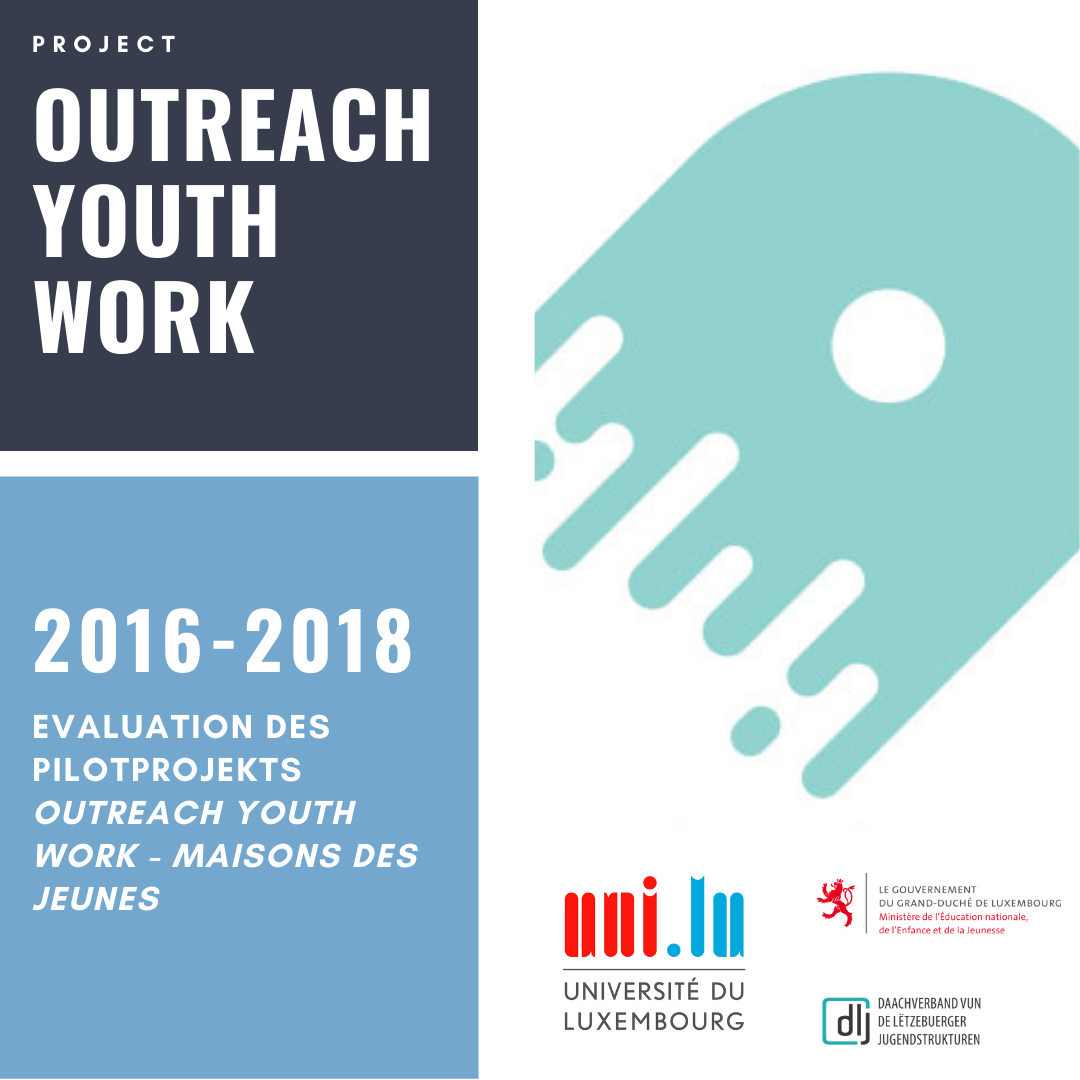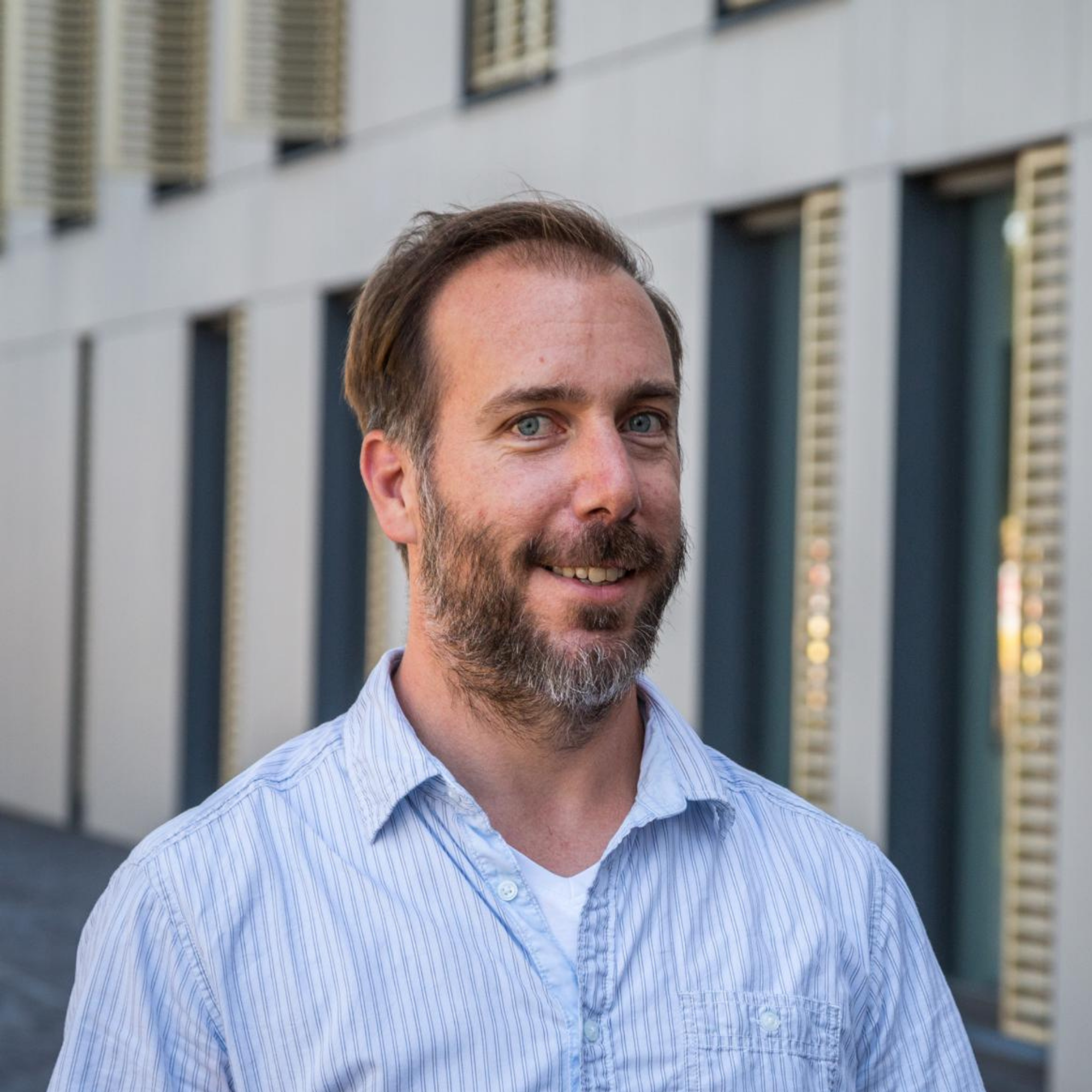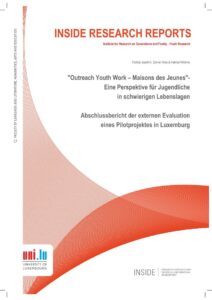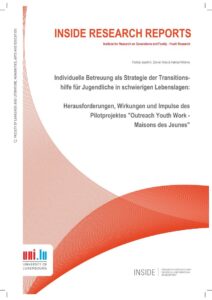Daniel Weis is a scientific project collaborator for the study “Potential and Value of Education-Oriented Youth Work”. He is a Research (and Development) Specialist at the Centre for Childhood and Youth Research (CCY) at the University of Luxembourg.
This is custom heading element
A project of the youth centres (Maisons des jeunes)
The aim of the project, implemented by the Entente des Gestionnaires des Maisons de Jeunes (EGMJ) together with five youth houses, is to identify young people in the context of outreach youth work, motivate them to leave their inactivity and support them in developing a professional perspective. The programme evaluation of the University of Luxembourg aims to review the methodological approach and performance of the Outreach Youth Work pilot project in terms of its generalisability and to generate data that can be used to improve and further develop the programme.

Jump to content
Objective
The aim of the Outreach Youth Work – Maisons des Jeunes project, implemented by the Entente des Gestionnaires des Maisons de Jeunes (EGMJ) in partnership with five youth houses, is to identify young people (16-26 years old) in the context of outreach youth work, motivate them to leave inactivity and support them in developing a professional perspective. The programme evaluation of the University of Luxembourg aims to assess the methodological approach and performance of the Outreach Youth Work pilot project in terms of its generalisability and to generate data that can be used to improve and further develop the programme.
Methodology and data basis
In the first phase of the evaluation, the strategy and the framework conditions of the project, i.e. the programme level (administration and coordination), are analysed. For this purpose, the conception of the planned measures is first evaluated. This includes the administrative processes and communication structures as well as the selection criteria for the selection of the youth houses and the development of the concept. Furthermore, this contextual data serves to reconstruct the process of developing and implementing the model project. The data basis is formed by a document analysis as well as qualitative interviews at strategic (project manager) and operational level (chargé de mission éducative).
In the second evaluation phase, a process evaluation is used to examine how the youth houses implement the outreach project and with which concepts it was implemented. It is determined, for example, whether the implementation of a measure has taken place according to the preliminary planning or whether there have been adjustments or a need for change. Here it is important, for example, to recognise the local context. Important questions here are, for example, whether the objectives have been adequately defined, whether feedback loops have been installed and how the project progress is documented. A document analysis of the programme documents is used as a methodological approach. Qualitative interviews with staff of the youth houses and the EGMJ’s “chargés de mission éducative” will show where the strengths of the programme lie, but also where there are difficulties in implementation and how the staff deal with these difficulties.
The third evaluation phase is dedicated to the effectiveness of the project at the level of the target group. For this purpose, the changes in attitude and awareness of the youth and young adults involved in the programme will be determined. Qualitative interviews and a group discussion will be used as methods. It will be investigated what motivated them to step out of their inactivity, to change their attitudes and behaviour and to build a professional perspective together with the “chargé de mission éducative”.
In addition, local experts (e.g. municipal leaders, youth centre staff) will be interviewed about their views on the pilot project and possible changes within their municipality. A group discussion will also be conducted with these local experts.
The whole process and the analysed data will be communicated to and discussed with the project initiators and the participants at regular intervals.







